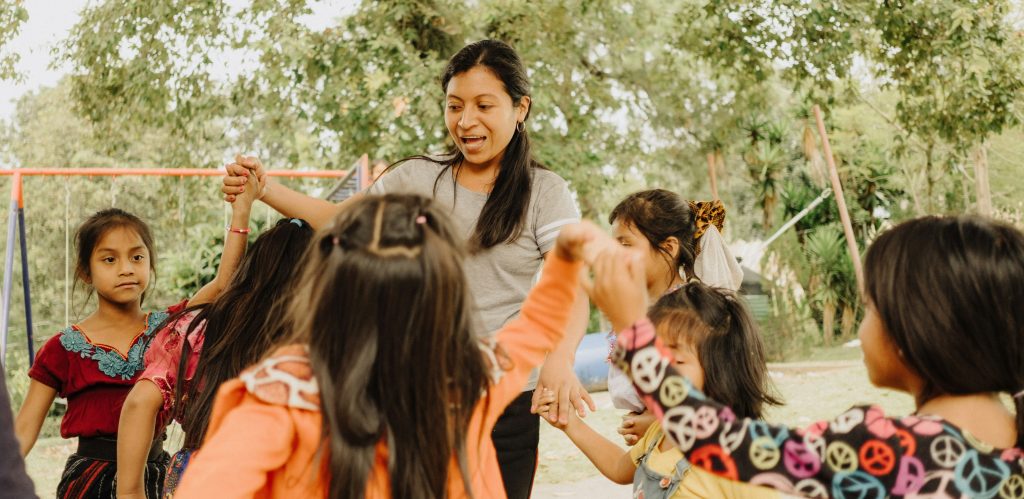USAID/Guatemala and OCE Impact Evaluation Design for the Central American Service Corps - National Youth Service Initiative Activity in Guatemala

Call for Capacity Statement
The United States Agency for International Development (USAID) Office of the Chief Economist (OCE), USAID Guatemala, and Long-term Assistance and SErvices for Research, Partners for University-Led Solutions Engine (LASER PULSE) at the Purdue Applied Research Institute, Global Development Innovation Division (PARI-GDI) seek Capacity Statements (CSs) from multidisciplinary teams of researchers to design options for an impact evaluation using a Randomized Controlled Trial (RCT) or other rigorous methods for the Central American Service Corps – National Youth Service Initiative (CASC-NCASC-NYSI) activity in Guatemala.
Background
USAID Guatemala and OCE are seeking a research team to design an impact evaluation of the Central American Service Corps – National Youth Service Initiative (CASC-NCASC-NYSI) activity in Guatemala. The goal of the CASC-NCASC-NYSI activity is to connect young people with meaningful opportunities to build their futures in Guatemala and address drivers of irregular migration among those most likely to migrate through paid community service opportunities, mentorship, and paths to future employment. It will target youth aged 15-29 with the following elements: access to education, particularly for youth who dropped out of school; workforce readiness training (financial literacy and soft skills); stipends; and community service. The activity is set to launch in 2024 with a small pilot of some activity components cohort and a first-year focused on building a solid foundation for nationwide implementation.
The activity aims to involve 25,000 youth, ages 15-29, in its five-year duration. The activity is expected to lay the groundwork for a nationally owned youth service corps, and the evaluation will yield important information for a successful transition and scale-up. CASC-NCASC-NYSI will be implemented by Fundación Crisálida (Glasswing International), which laid the initial groundwork for developing a service corps through research, design, and stakeholder engagement over an 18-month+ period and conducted two youth-led community service operational pilots in 2023 and 2024.
An impact evaluation is planned for the CASC-NCASC-NYSI activity and is required in the activity award. The impact evaluation will take place with annual cohorts of approximately 5,000, beginning in early 2025. The impact evaluation will focus on interventions intended to create opportunities for youth, and may explore questions related to operational considerations, such as selecting the appropriate stipend amount and the effects of the stipend on youth participation and decision-making; changes in youths’ intent to migrate; means of engaging youth in workforce development and service programming, and/or program impact, such as whether. The initiative serves as a catalyst for change at the individual or community level, post-program choices and outcomes related to education, employment, civic engagement, migration, etc. The USAID Guatemala Mission and implementing partner are eager to use the impact evaluation to generate actionable evidence to improve the effectiveness of programming and inform a transition to national ownership of this program.
Summary
What?
Call for Capacity Statement for USAID/Guatemala and OCE Impact Evaluation Design for the Central American Service Corps – National Youth Service Initiative Activity in Guatemala.
Why?
To design options for an impact evaluation using a Randomized Controlled Trial (RCT) or other rigorous methods for the Central American Service Corps – National Youth Service Initiative (CASC-NYSI) activity in Guatemala.
Where?
Guatemala
Who?
Multidisciplinary team of researchers.
When?
Call for Capacity Statement release: April 18, 2024.
Application deadline: 5:00 pm EDT, May 16, 2024.
Timeline & Information
- Release of Call for Capacity Statement: April 18, 2024
- Questions and clarifications by: May 2, 2024
- Application deadline: May 16, 2023.
- Announcement of finalist teams: Tentatively May 30, 2024.
- Estimated funding per study::
- Funding and Timeline for the Design and Scoping Phase: approximately 40-50 person days over 3-5 months.
- The estimated Funding and Timeline for the Impact Evaluation Phase will be determined after the close of the Design and Scoping Phase.
Successful Application Characteristics
- Experience conducting randomized controlled trials (RCTs) (also known as “randomized evaluations”)
- Relevant subject-matter expertise
- Publications in peer-reviewed academic journals
- Meaningful engagement of researchers with primary institutional affiliation in an LMIC and gender diversity
- Experience conducting research that requires primary data collection in Guatemala and/or Central America
- Proposed engagement of youth in the scoping and/or evaluation phase
- Professional fluency in Spanish and English
- Cost will be considered among highly rated-proposals

